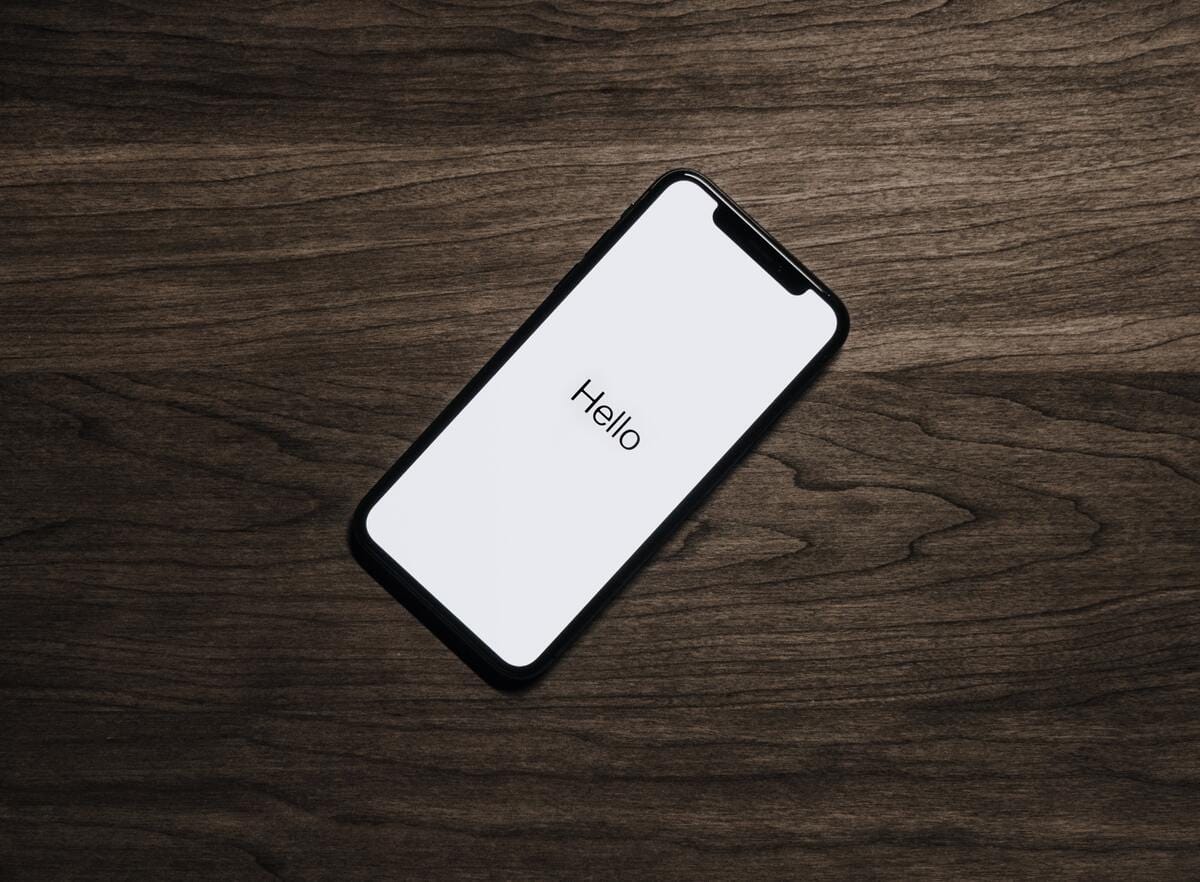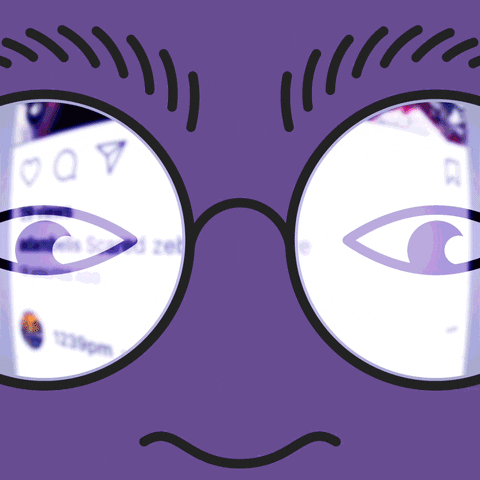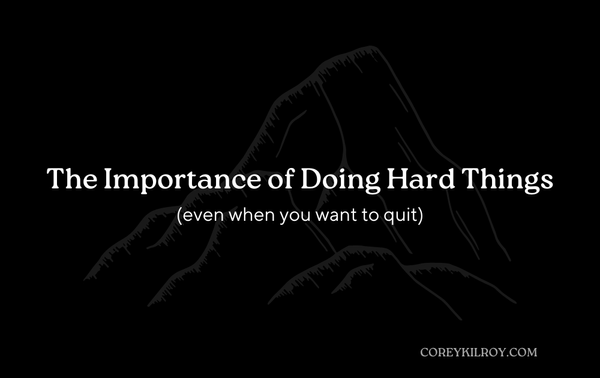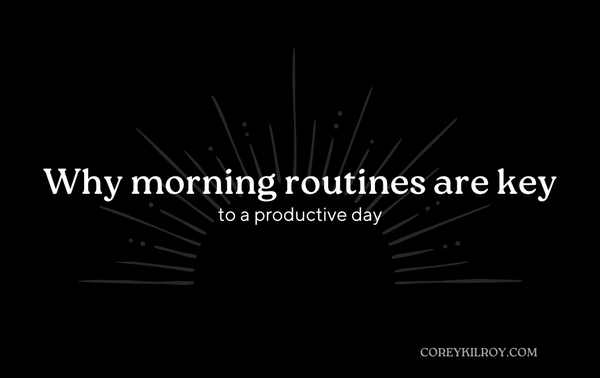How to Reduce Screen Time & The Detrimental Effects of Your Cell Phone

"I fear the day that technology will surpass our human interaction. The world will have a generation of idiots." -A. Einstein
Your phone is NOT your best friend.
One study showed that 46% of smartphone owners indicated they “couldn't live without” their phone for a week with evidence of mounting anxiety and physiological withdrawal-like symptoms (Kim et al., 2014).
In a nutshell… we’re all raging addicts.
Picture this, you’re at your desk getting some work done, feeling really great about yourself for finally starting some work due tomorrow.
All of a sudden – DING!
“No way, Samantha just broke up with Brett?! I gotta text the group chat”...
Two hours later, you’ve ended up binge watching every cooking video on this italian man’s TikTok page and feel like you can now be Gordon Ramsy’s sous chef… but that assignment you were “working on'' hasn't been touched!
Glad we got to stay up to date on Samantha’s love life, though!

All jokes aside, cell phone and social media usage has evolved into a serious epidemic.
In 2022, an average person spent about 2 hours and 54 minutes a DAY on their phones.
That amounts to over 44 DAYS of the year that you spend on your cell phone.
Imagine the number of things you can accomplish in 44 days.
You constantly lie to yourself every day that you simply, “don’t have enough time” to accomplish those nagging goals that you wish to get done. But in reality, your free time is most likely being spent on your phone.
So why should we really care about social media & cell phone usage?
For one, a study showed that “overall increased screen time is associated with negative outcomes such as lowered self-esteem, increased incidence and severity of mental health issues and addictions, slowed learning and acquisition, and an increased risk of premature cognitive decline” (Neophytou et all., 2021).
Long story short, that phone in your pocket is damaging your mental and physical well-being.
I mean picture this – I was driving to work at 6 o'clock in the morning only to notice a man next to me driving his work truck, hunched over, scrolling through TikTok on the HIGHWAY. Enough said.
This ever-evolving problem could be attributed to a combination of many things, but I can break it down into a specific few.
First, people are escaping from their reality through the overconsumption of social media. Yup.
Social media and the internet is more accessible today than ever before, thanks to the tiny devices everyone all around the world has in their pockets.
People would much rather scroll through TikTok than to buckle down and get some work done. It’s much easier to look at your phone and scroll, rather than strapping up and going for that 2 mile run.
People are unhappy with their current reality and would much rather see what everyone else is doing online to distract them from that fact. Or even better, make sure others are feeling their pain too, so they can feel better for themselves.
Now don’t get me wrong, I’m a culprit for this just like everyone else is! I’m simply putting it out into existence so we can all come to this realization.
Here are some other reasons why we should really care about social media & cellphone usage:
- Social media impacts mental health: “Participants expressed the view that they felt social media was a risk to mental wellbeing. They identified stress, low self-esteem, depression and suicidal ideation as likely negative consequences of social media” (O’Reilly et al., 2018).
- Social media leads to cyberbullying: A recent scoping review of international studies on cyberbullying showed "a median prevalence of 23%, with social media being the main platform, alongside social networking and other applications” (Hamm et al., 2015).
- Social media leads to addiction: “The suggestion presented was that social media was as addictive as substances and can be problematic for some people, as it takes away from time from their families which can have bad side effects (O’Reilly et al., 2018).

How Can We REDUCE Screen Time?
Obviously, any “addiction” or habit is going to take some time and a great deal of effort to break. But with enough dedication and discipline, your life will benefit from a decrease in screen time each day.
Here are 7 strategies for reducing your screen time:
1. Track Screen Time and Set Limits
You’re probably thinking that there’s no way that you’re getting too much screen time. And, since you’re in denial, why would you want to limit your usage anyway?
Being able to visualize where you’re spending most of your time each day, on your phone, can give you a better understanding as to where you’re prioritizing most of that time.
Are you checking your emails for most of the day? Mindlessly scrolling through Instagram for an hour a day? Who knows?
If you have an iPhone, to check your screen time go to Settings>Screen Time>See All Activity.
This will break down how long you spend on your phone each day and what apps are taking up most of that time. It’s incredibly useful.
On the iPhone, you’re also able to “Add Limits” to the apps on your phone. To do this go to Settings>Screen Time>App Limits>Add Limit.
This will then prompt you to put a time limit to a specific app each day. Once that limit is met for the day, then it shuts you out of that app. A great tool for adding some accountability to where you allocate your time each day while on the phone.
2. Lock Your Phone When in The Bedroom
One of the biggest indicators for poor sleep in some individuals is due to the fact that they’re using their phones right before bedtime and/or as soon as they wake up.
“Many of us use our phones as alarm clocks, meaning they are the last thing we see at night,” writes Alex Hern in The Guardian. It’s also “the first thing we see in the morning, perhaps even before our eyes are fully open.” That blue light exposure can impact the quality of our sleep. In fact, according to a 2017 study “social media use in the 30 minutes before bed is independently associated with disturbed sleep among young adults”.
Even if you’re doing the right thing and not scrolling through social media, the blue light right before bed is significantly impacting the quality of your sleep
Also, grabbing your phone when the alarm goes off means you aren’t just turning over and waking up. You’re now laying in bed going through your inbox. The result? You stay in bed longer than planned and get stressed out about the day.
Instead, charge your phone in another room so all distractions are out of arm's reach. If you absolutely cannot have your phone in another room, then charge it on the other side of your bedroom so that you’re forced to get out of bed to turn that alarm off.
3. Use “Focus” on your iPhone or iPad
Sorry this has become an Apple post, but this is an incredible tip!
With the recent software updates, Focus lets you stay in the moment when you need to concentrate or step away from your device. You can customize Focus settings and choose when you want to receive alerts and notifications while letting other people and apps know when you’re busy.
You can customize what apps, notifications, and people can contact you when that specific Focus is activated.
You can also create multiple focuses based on what you're doing. I have a specific Focus that automatically turns on when I start a workout in the gym, or another one while I’m at work!
To create a Focus on your iPhone go to Settings>Focus and then follow the prompts!
4. Pick a new hobby
It’s a Saturday morning. You just woke up after a fun Friday night out and roll over to check your phone.
Suddenly, you look at the clock and it’s 4 PM and you’ve just spent your entire day scrolling through social media.
Instead, pick up a new hobby! This allows you to remain active, doing things that you may enjoy, while still staying away from screen time!
Pick up a book, a physical activity, anything that keeps you mentally and physically ACTIVE.
5. Take Distracting Apps Off Your Home Screen
A lot of our phone usage can be thanked to accidental and unconscious behavior.
You went on your phone to do one thing but ended up going through 5 other apps in the process. Switching from email to Instagram, and so forth.
To prevent this, remove all distracting apps off of your home screen and only keep the apps you want to encourage yourself to use front and center. For example, your Google Maps, email, notes, etc.
To go a step further, you could even delete certain apps such as Facebook or Twitter entirely and relegate your usage to your smartphone’s web browser.
6. Turn Off as Many Push Notifications as Possible.
It’s not necessary to be notified of every “like” on your new Instagram post, or when your favorite podcast just released a new episode.
A simple way to cut down on distractions is to turn off push notifications for as many apps as you can. Just go to Settings > Notifications to control your preferences.
Personally, I only allow notifications for email, messages, calendar, and utility apps that are essential to everyday tasks.
7. Stay Accountable
I mentioned before that you can monitor your Screen Time on your iPhone in the Setting menu.
Be sure to check this once a week or so, just to make sure you’re not wasting precious time every day on nonessential and distracting apps.
In the end…
Cell phone usage and social media have created a plethora of issues for chronic users, whether that be mentally or physically.
I found these tips above useful when trying to reduce the amount of time spent online and I hope you do too!
TL;DR (Too Long; Didn’t Read)
- Your phone is not your best friend
- Cell Phone / Social Media usage was found to be used for 2 hours and 54 minutes a DAY in 2022 (equivalent to 44 DAYS a year).
- Implement the 7 tips above to help reduce screen time
#KEEPPLUGGIN and be well.
Until Next Time.
🙇🏻♂️🌱 -C.



